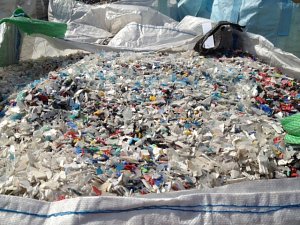Plasticity NYC 2014
Doug Woodring - Founder, Plasticity Forum
Published on 25 April 2014

On June 24th, the Plasticity Forum will be coming to NYC to share the wealth of knowledge from the leading edge of those who are facilitating a world where plastic is used, but without the footprint. What does this mean? It means all of the benefits of light-weighting, durability, flexibility, and color, without the hangover. The hangover comes in the form of plastic pollution, which no one enjoys, and where some get seriously penalized from having it, but which has not seemed to yet inspire the world audience to create ground breaking innovations that can harness the resource value that this material has, in a long term, circulatory fashion. And fashion is just where some of this material is going for its second or third life, instead of the circulatory currents that many now know exist in our major oceans, dispersing the artifacts of our waste creation to the places we flock to for “escape” and revival.
First launched at the Rio+20 Earth Summit, and subsequently held in Hong Kong, the Plasticity Forum is a cross section of thinkers, solution providers, brands, users and those who appreciate scale, to expedite the solutions and innovations that exist today to keep plastic from becoming a problem for our society. This problem, however, can be a huge opportunity, if that “scale” can come into play. Plasticity brings together the leaders in innovation, design, packaging, materials, recycling, and solutions, all of which are needed in a resource constrained world. Those who are at the front of this discussion, will win, with consumers, clients, and host governments. The latter is important, because waste is a sidelined discussion with often does not get much attention, but which increasingly burdens our societies, economies, and ecosystem. Tapping into this resource offers a world of opportunities.
The World Bank estimates that due to population growth, the world’s municipal solid waste (MSW) footprint could double by 2025. By 2050, it could triple to 6bn tons/year. However, there are few cities and countries which will be able to handle a doubling of MSW by 2025. To put this into perspective, today’s global waste footprint of MSW would cover the same land mass of California or Japan, at 10 meters (32 ft) deep. Wow. If it triples, that would be the same as covering all of New Zealand, California and Spain in 32 ft deep of trash per year. Almost all of this has value, but it is simply not being tapped.
Plastic is light weight, and lasts a long time, but its content and configuration are often not standardized across products or industries, creating gap in scale-optimization in term of encouraging re-circulation within products. Those who can resolve these issues within their production and recovery operations, with their consumers, and with their recipient nations, will open long-term business opportunities that fit within the needs of a globally alert, resource constrained environment of commerce and societal gain. The Plasticity Forum helps drive and inspire this discussion, to scale, where it is needed.
